Can Democracy Be China's Panacea: From Modern History to Contemporary Society
Many social networking sites composed of leftists who support liberalism are invariably filled with a superstition: as long as the CCP is overthrown and democracy is promoted, the problems of modern China will be solved. Democracy is like a panacea in the mouths of these idealists. It seems that the day after the current government collapses, the Chinese people will be able to hold their votes in high spirits to elect members, and truly embark on the beauty of separation of powers and a well-off for the whole people. society, smoothly transformed into a beacon of freedom in Asia. And a group of people who are hostile to it, because they firmly believe in the inferiority of the Chinese people, support the CCP's totalitarian rule over the people, and gloat at the harvested leeks.
Looking at it this way, China is really a long way to go towards democracy. Mentally and physically "independent" from the CCP's political propaganda, on the one hand, they are blindly pursuing the practice of Western democracy in Chinese society; The rest will either still live in the prosperous world depicted by the CCP, or eat dividends as a red/official generation, which is naturally not expected. In addition, the legacy of China's modern history and the strong export of nationalism under the rule of Xi Jinping have further led to the fear and rejection of democracy by ordinary people, and its rigid social system has become a stumbling block on the road to democracy that cannot be ignored .
Given the situation in China today, it is really difficult to smoothly transition to democracy and maintain it. Some people in the name of democratic fighters delusionally believe that by overthrowing the wall and the ruler behind the wall, they can save China, which is too fantastic and will only be spurned by the Chinese people. Looking at history, the Chinese people will rise up against the centralization only when they are not full to eat, and even this spirit of "a prince and a general, would you rather have a seed?" With the deification of historically controversial figures, the spirit has gradually faded. .
Democracy, the most intuitive explanation is to give priority to the people. However, if a country wants to have the conditions for democracy, it is not enough to "have the people". Forcibly turning an unprepared country into a democracy will only result in a degeneration of populism or into an illusory democracy with a one-party dictatorship at its core .
The world's largest democracy, India, has been testing the brink of democracy's collapse. India became independent in 1947 and held its first general election in 1952, and the Congress Party (INC) has been in power for more than three decades since then. The third prime minister, Indira Gandhi, Nehru's daughter, has been controversial for his dictatorship and nepotism against his son Shanqi. After being accused of fraud by political opponents, Indira declared a state of emergency and abused his political power to try to suppress dissidents. In 1977, he was forced to step down due to loss of support. For decades, India has still not been able to completely escape the shadow of this family and the one-party dictatorship of the Congress party. Although the current president, Modi, is often criticized for leading India to dictatorship for his right-wing patriotism and strong ties to the radical Hindu nationalist group RSS, he is still a legally elected prime minister. Compared with India, the African countries whose democratization failures turned into dictatorships and the Middle Eastern countries whose revolution failures ended up on themselves are even worse.

Having said that, the chaos of India's judicial system has somewhat reduced the credibility of India's democracy. The people have the right to take to the streets and ridicule the government, but they may be unfairly treated by the law but have nowhere to appeal. According to the 2020 "The Economist" Democracy Index study, India is only 53rd.
In my opinion, a successful democracy requires all of the following:
- A well-established and functioning legal system that guarantees equality
- Educated and civic-educated citizens
- secular government
- separation of powers
- Diversity of people's ideas
- A market that operates under capitalism
- Successive and successful democratic movement events in the history of the nation or colonial state
The first five should be very easy to understand, and I believe they are accepted by most people. In Article 6 I emphasized that the market should be capitalist because, unlike capitalism, which encourages freedom of competition, a socialist-dominated economy forces the market to be nationalized on the basis of distribution according to work, even though the political system is built on the concept of democracy. It is also easy to lead to a series of turmoil through a large number of government interventions, and it is very likely to return to the authoritarian system in the end. The last is demonstrated by many modern democracies.
From the 17th century to the 18th century, the Enlightenment movement spread in Europe, breaking the traditional dogma under the domination of the Catholic Church at that time and preaching the liberation of human thought by knowledge and reason. The Enlightenment in the West not only promoted the development of modern science, it was also the first time that the common people had the privilege of being exposed to the universal value of human rights and the concept of political equality. These ideas, born in the Enlightenment, drove a large number of European countries led by France to enlightened autocracy in the future, or became the core ideas of many revolutions. Norway, which has always been regarded as a model of democracy, was inspired by the Enlightenment to declare independence in 1814 and wrote its own constitution, which drew on the principle of the separation of powers proposed by Montesquieu in the 18th century. The above-mentioned India, as well as the former beacon of democracy, the United States, as a former British colony, have been influenced by the United Kingdom and thus converted into democracy.
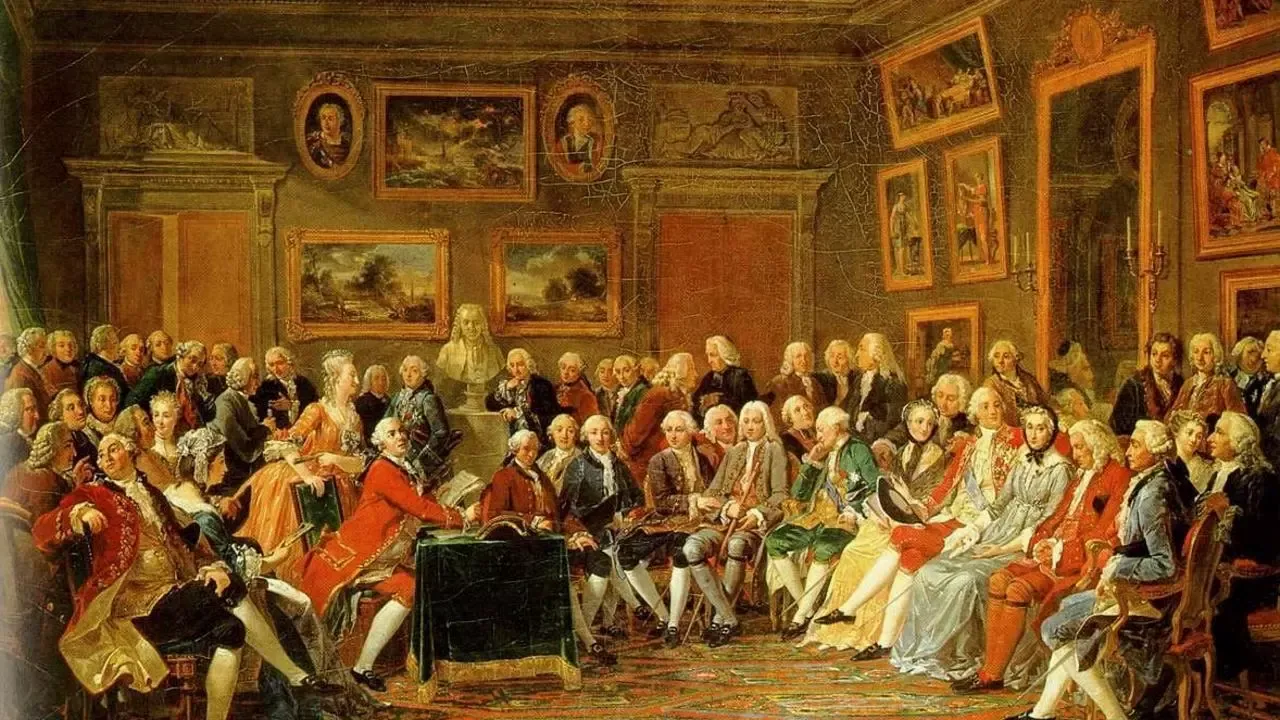
At the same time, China on the other side was under the rule of the Qing Dynasty, which implemented a small-scale peasant economy and adopted a closed-door policy. During the Spring and Autumn Period and the Warring States Period, the academic thoughts produced when a hundred schools of thought contended laid the cultural foundation for China, and made great contributions to Eastern philosophy at the same time. However, the dynasties after this period either chose to rule the people with a legalistic monarchy and a law-based system, or they chose to distort Confucianism and train the people to be slaves to the government. New ideas emerge. The long-term slavery made the Chinese accustomed to obeying the monarch, and the large amount of labor made the common people have no time to worry about their knowledge, which naturally reduced their ability to think independently. Although the distribution of powers between the three provinces in the Tang and Song dynasties was sometimes mentioned at the same time as the separation of powers in the West, the division of power in China at that time was not based on the fact that the people were the masters of the country, and there was no such thing as mutual restraint. Purely to espouse autocracy more effectively. In the Ming Dynasty, even the three provinces were completely abolished; in the Qing Dynasty, almost all political power was concentrated in the emperor. Different from the gradual progress of modernization and democracy in the West, China is deeply entangled in the power disputes at the top and the insensitivity at the bottom, and until the end, it bites the footbinding cloth of the ancestors who have been reformed and does not amplify cultural self-confidence . The process of changing dynasties is completely self-digging graves.
Say one more word here. In his book "The Ugly Chinese", Professor Bo Yang blamed the Chinese people's inability to unite, think independently, lack self-esteem, lack of sympathy and tolerance and other shortcomings on the inferiority of the Chinese, and compared Chinese culture to a big Sauce jar. I don't fully agree with what he said. The so-called inferiority is just the precipitation accumulated by the almost continuous imperial autocracy and wars for thousands of years.
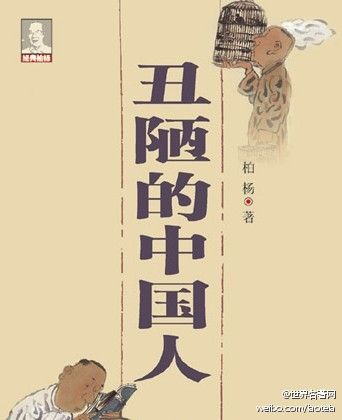
Under the pressure from the revolutionaries and constitutionalists, the crisis brought about by civil uprisings, and the aggression of the West, the Qing Dynasty also completely perished with the outbreak of the 1911 Revolution. However, China has not yet stepped out of the shadow of imperial rule, and it is still repeating the same mistakes to this day. Although recent history is full of campaigns that have attempted to pull China out of the quagmire, they have all ended in the ruling class's fear of losing power and the crackdown on dissent. The absence of a truly successful and uninterrupted democratization movement in China, coupled with the "big country confidence" of the ruling class, has gradually led to popular misunderstandings and fears of democracy, and even encouraged the development of extreme patriotism . In a society that rejects democracy, has many problems in the education system, and is accustomed to the endless emergence of propaganda under one-party dictatorship, how do you ask him to transform into democracy?
The biggest reason for the failure of the constitution in the late Qing Dynasty was that the Qing court was unwilling to give up the central power, and the country gentry were unwilling to abdicate the deprived local power. In order to win over an equal force against the more radical revolutionaries, the Qing court reluctantly compromised and established a cabinet that seemed to be fake, just to protect the regime. Although most of the cabinet members were members of the royal family, the birth of the cabinet only accelerated the demise of the Qing Dynasty. After the end of the Qing Dynasty, Yuan Shikai and Sun Yat-sen reached an agreement in favor of the republic, but finally betrayed the idea of the republic and declared himself emperor. It is a pity that although the republic was still only a crumbling framework in China at that time, the concept of "everyone can be the emperor" brought by the republic has already entered the hearts of the people. If Yuan Shikai learns not to restore the imperial power that was just overthrown in an open and honest way, but learns from someone to force the cabinet to amend the constitution and become a lifelong president who sounds better in name, he will definitely be able to rewrite history with the military power in his hands.
At the same time, the father of the nation, Dr. Sun Yat-sen, proposed the Three Principles of the People: nation, civil rights, and people's livelihood. The revolutionary program supported by the Three People's Principles is, in my opinion, the most ideal and feasible program so far. It's just that this idea was born at an untimely time. It encountered a large number of peasants in rural China who had no culture and just wanted to eat, and the descendants of the Kuomintang who were devoted to corruption and had no interest in people's livelihood. This is also in line with what I said before: the common people think of revolution only when they are hungry; one of the keys to the success of democratization is that events can trigger the ruling class to give up their rights; education is very important; Education is important; education is also important.
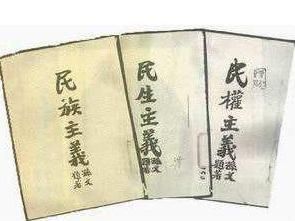
Until the Communist Party came to power, the people were simply ignorant, not full of fear. From the Mao Zedong era of a hundred flowers blooming and a hundred schools of thought contending and the Cultural Revolution, to the Xidan Democracy Wall and the June 4th Movement in the Deng Xiaoping era, to the technological authoritarianism and GFW censorship in the Xi Jinping era, all of them are on the road to democracy.
The original meaning of the double-hundred policy was to "become the policy for the development of science and the prosperity of literature and art in our country", but it finally became a political movement to find out the "poisonous weed". Chinese democrats and intellectuals happily jumped into the trap of the anti-rightist movement. Although it is difficult to say now whether Mao Zedong planned to "lead the snake out of the hole" and pretend to be stupid in the later stage, or left the door open for people to attack, the movement made China's hard-to-developed intellectual group begin to speak in fear. This prejudice against dissent culminated in the Cultural Revolution. Mao Zedong launched this revolution under the guise of overthrowing revisionism and U.S. imperialism, in order to consolidate the regime and shape a new god, which directly brought China back to its original state and made intellectuals of all subsequent eras successfully suffer from PTSD. During the Cultural Revolution, everyone was careful for self-preservation, and no longer held the same enthusiasm for the construction of the motherland when the country was founded. This fear of being criticized for one's own wrong ideas continues to this day.
After Deng Xiaoping came to power, the most well-known credit was the opening of the pilot trade zone to open up the Chinese economy, but the history of the "Beijing Spring" has rarely been a topic of discussion. China in the 1980s was like a two-sided coin. It might be beaten back to the tyranny of Mao Zedong's era by conservatives in the party, or it might move towards democracy under the earnest expectations of reformers and the general public. Many people see June 4th as the pinnacle of China's modern democracy movement, and the opening of the Xidan Democracy Wall is the beginning of the democracy movement. Only one year after the opening, the first big-character poster author to be arrested for demanding freedom and democracy appeared: Wei Jingsheng, who criticized Deng Xiaoping for taking the dictatorial line and striving for freedom of speech. With the arrest of Wei Jingsheng, the Democracy Wall was completely wiped out, and a large number of the backbone of the Democracy Wall were also arrested by the government. Ten years later, students from all over the country gathered at Tiananmen Square to protest against corruption within the party, strive for democracy, and call on the government to reduce restrictions on freedom of speech, with the memorial event for Hu Yaobang as the trigger. The movement unsurprisingly ended in a government crackdown.
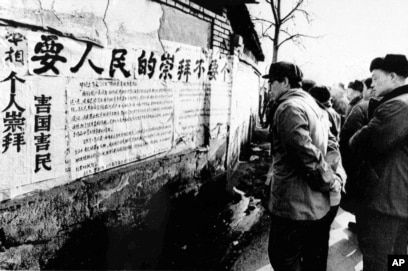
Later, when people talked about the reasons for the failure of the June 4th Movement, they basically revolved around the students being too idealistic, limited to the demands of slogans and their naive experience in dealing with the wily Communist Party leadership. In my opinion, the most fundamental reason comes from the group of students themselves. Since ancient times, successful revolutions have all required the blessing of power . The group of June 4 protesters was composed entirely of students from a disadvantaged social class, while the leaders of the Communist Party at the top of the pyramid were opposed to them. Students who lack financial resources, political power, and military power are doomed to failure. Another example is the Arab Spring, which occurred around 2010, a revolutionary movement led by young Arabs with a passion for reforming the government. The Arab Spring, which also ended tragically because of a lack of support from powerful figures, has thus far become the fodder for many to refute some countries' embrace of democratization.

If the China of the Qing Dynasty established the cynic mentality of the Chinese people’s obedience and numbness, and they were unintentional and unable to participate in politics; China under the rule of the Communist Party determined that the Chinese people’s expectations for freedom and democracy gradually faded or even almost disappeared; then the prevailing in contemporary China under the leadership of Xi Jinping Brainwashing education encourages the Chinese to blindly follow the party's footsteps and visibly reject democratic ideas from Western hostile forces .
With the development of science and technology, China's firewall technology has become more and more mature, making it impossible for most ordinary people to easily connect to the external network by simply modifying the host file in the early days. The CCP’s massive monopoly on Internet information has successfully transformed China into a society with “only one voice.” The lack of diversified information sources coupled with the long-term lack of independent thinking exercise has led to the decline of the people's immunity to fake news, thus accelerating the CCP's promotion of nationalism. The CCP promotes the following by controlling the contemporary mainstream media, entertainment, forums, news and other things that can easily become the weather vane of public opinion:
- The country and the party are equal, patriotism should be equal to loving the party
- Western capitalism is a force hostile to socialism with Chinese characteristics
- China has its own freedom of speech and democracy independent of the West
- Stability should prevail
- China is superior to other countries in terms of ideology, history, and social structure.
- People should look at those countries that have invaded the motherland with hatred
Children who have received patriotic education and these deformed ideas in China since childhood, because they are difficult to contact or even unwilling to contact other ideas, will become the defenders of the CCP's centralization in the future, which is what we now call "little pink", "five cents" ", "Wolf Warrior", etc. The entertainment to death brought by the modern Internet further deprives the people of their ability to think, making it easy for people to accept all the information they hear. This kind of closed-door country, unwilling to admit the advantages of other countries, and trying to promote national self-confidence is the most deadly state. You can't save someone who is self-absorbed in the mirror and doesn't accept any criticism . The emergence of national self-confidence with Chinese characteristics is entirely due to the inferiority of the people. The more inferior people are, the more difficult it is to see their own shortcomings and make up for them in time.
Under the prevalence of this trend and the oppression of the upper classes, many articles that are completely nonsense can also be put on the table, such as Han Zhen's " China is the largest democratic country in the world today ." It is admirable for the CCP to beautify the idea of nonsense.
In addition to the Internet information screening in the age of technology, the long-standing household registration policy in China is also a major obstacle to democratization. The household registration system is similar to the racial system in India, except that China does not look at your surname, but at your birthplace. The original intention of the household registration system is to maximize the control of population movement and the protection of agriculture. A democratic society should be built on the basis of equality for all, but China's household registration system provides privileges for people in certain regions by segregating public resources. Losing freedom of movement is tantamount to losing an important precondition for equality, thus making democracy more difficult.
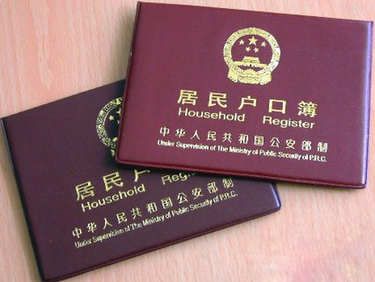
Go back and look at the democratic conditions I originally listed:
- A well-established and functioning legal system that guarantees equality
- Educated and civic-educated citizens
- secular government
- separation of powers
- Diversity of people's ideas
- A market that operates under capitalism
- Successive and successful democratic movement events in the history of the nation or colonial state
Think about it with your conscience, how many of the requirements are satisfied in contemporary China? Maybe none of them are satisfied.
- The household registration system cannot guarantee the equality of citizens. Someone out there may be able to solve your problem more quickly than the legal system
- In China, the highest education is still the majority of people with a junior high school degree, and schools do not teach "correct" civic education
- Although the government is secular in a narrow sense, the recent attempt by the domestic media to portray Xi Jinping as a god is hard to convince people that this is not a cult.
- Centralized power
- The unitization of information has led to the unitization of people's ideas, which has led to rigid thinking for a long time.
- The government often intervenes in the market
- Historically, there has been a dearth of successful and consecutive democratic movement events. The once colonized region retains its democratic system, but is now in a "semi-independent" state and should not be confused with inland politics
Coupled with several common problems and social defects of contemporary Chinese:
- Fear of democracy because historical democratic movements have not had good results
- Democracy is excluded because it is a product of Western capitalism
- Unwilling and unable to participate in politics
- Accustomed to one-party governance and calling people the master, it is difficult to change for a while
- The powerful are reluctant to give up their existing power, and the capitalists are reluctant to waste their existing property
To reiterate my opinion: in the current state of China, democratization is extremely difficult . Many systemic problems in China may have been left over from thousands of years ago. If you want to revive the dying old tree by pruning its branches and leaves, it is better to uproot the tree and replant it without worry. To a certain extent, I may be as magical as the gods who surf TV. After all, I don’t believe in anything other than “all things are born to support people, and people have nothing to repay the sky. Kill, kill, kill, kill, kill, kill, kill, kill, kill, kill, kill, kill, kill.” can save China. After coming into contact with foreign ideas, many students of the Qing Dynasty chose to join revolutionary organizations such as the Xingzhong Association, determined to overthrow the Qing government. Contemporary international students may still be lying in an air-conditioned room complaining on the Internet about the underdevelopment of foreign food delivery, and are determined to return to China to join the system and become a small civil servant. Although the social system is difficult to change, it is not a fantasy; a person's thoughts and worldview may become deeply ingrained under long-term closed conditions, and it is difficult to change even if they are separated from the environment .
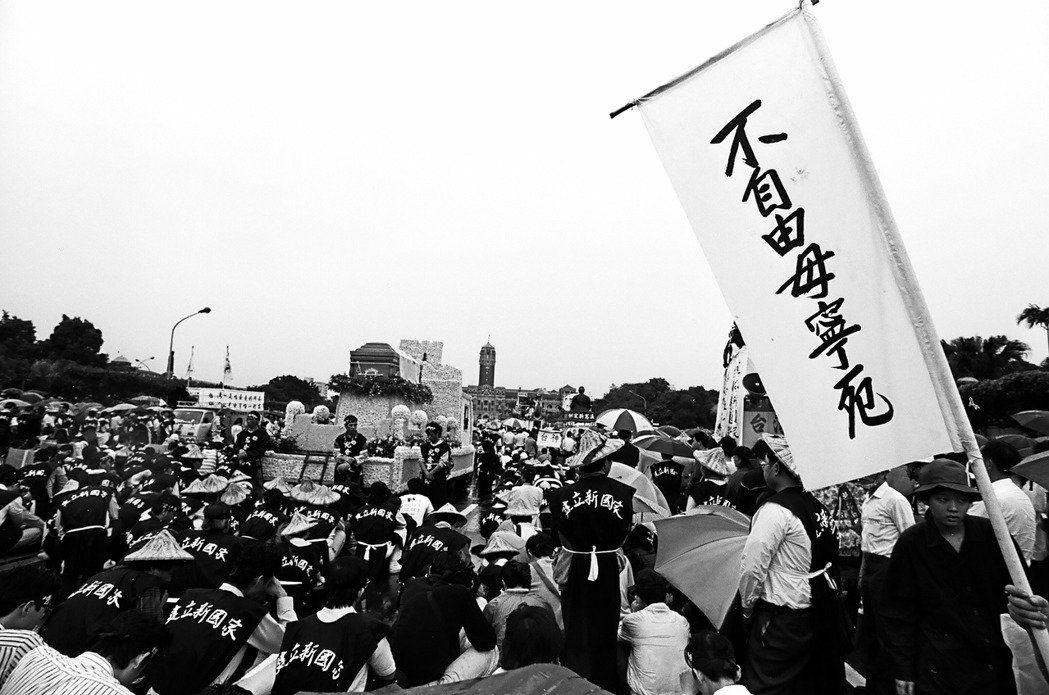
Even if democratization succeeds, which one would you choose, an existing government that oppresses the people by an upright one-party dictatorship, or a future government that sneakily calls itself democracy and oppresses the people?
References
"The Search For Modern China", Jonathan Spence
"India After Gandhi", Ramchandra Guha
"The Political Gains and Losses of China's Past Dynasties", Qian Mu
Wikipedia
Like my work? Don't forget to support and clap, let me know that you are with me on the road of creation. Keep this enthusiasm together!
